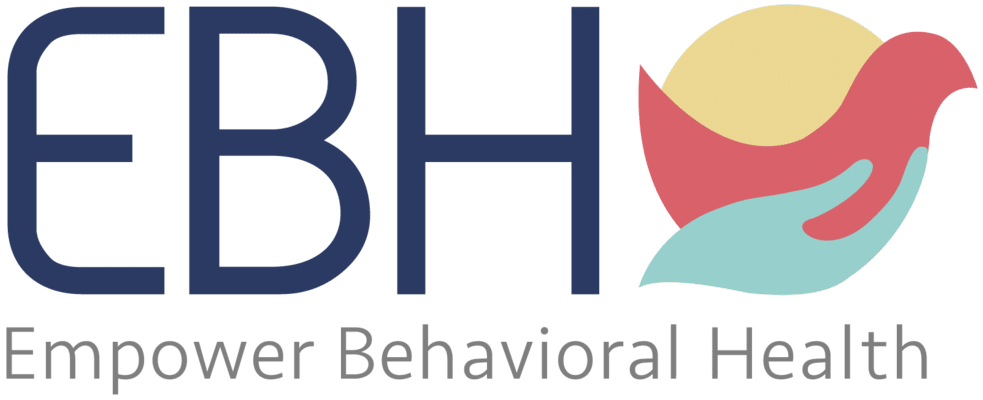Understanding Autism Spectrum Disorder

This was originally posted on October 13, 2022 – Updated on October 10, 2024
If you are the parent of a child, or an adult, questioning whether or not you have autism spectrum disorder (ASD), you may wonder what behaviors classify as autism and how it’s diagnosed. While ASD may look different for each individual, there are some common symptoms. By learning more about ASD and getting an early diagnosis, people with ASD can receive the support needed to live happy and productive lives.
What is Autism Spectrum Disorder (ASD)?
Autism Spectrum Disorder is a lifelong neurodevelopmental condition that affects how a person communicates, interacts with others, and experiences the world around them. ASD can cause significant social, communication, and behavioral challenges. The term ‘spectrum’ reflects the wide range of challenges and strengths possessed by each person with ASD, meaning there is a wide variation in the type and severity of symptoms individuals experience. Autism spectrum disorder is characterized by difficulties in social communication and interaction, as well as restricted and repetitive patterns of behavior, interests, or activities.
Understanding the Different Types of Autism Spectrum Disorder
Previously, autism was classified into distinct subtypes, such as Autistic Disorder, Asperger’s Syndrome, and Pervasive Developmental Disorder-Not Otherwise Specified (PDD-NOS). However, in 2013, these subtypes were merged into a single diagnosis of Autism Spectrum Disorder. This change recognizes that autism is a spectrum condition, with individuals experiencing varying degrees of challenges and strengths across different areas of development.
Common Autism Spectrum Disorder Symptoms
Autism spectrum disorder symptoms can vary widely from person to person. However, there are some common signs and behaviors associated with ASD. It’s important to note that these symptoms may manifest differently across age groups.
Signs and Symptoms of Autism in Toddlers
Early signs of autism spectrum disorder in toddlers may include:
- Limited or no eye contact
- Delayed speech or lack of babbling
- Not responding to their name
- Repetitive movements, such as rocking or hand-flapping
- Intense reactions to sensory stimuli
Signs and Symptoms of Autism in Children
As children grow, autism spectrum disorder symptoms may become more apparent:
- Difficulty understanding social cues and nonverbal communication
- Challenges in forming friendships
- Rigid adherence to routines
- Intense interest in specific topics
- Unusual speech patterns or tone of voice
Signs and Symptoms of Autism in Teens
In adolescence, individuals with autism spectrum disorder may experience:
- Continued social difficulties
- Anxiety or depression
- Struggles with abstract thinking
- Challenges in planning and organizing
- Sensory sensitivities
Risk Factors for Autism Spectrum Disorder
While the exact causes of autism spectrum disorder are not fully understood, research has identified several risk factors that may increase the likelihood of developing ASD:
- Genetic factors: ASD tends to run in families, suggesting a genetic component.
- Advanced parental age: Children born to older parents have a higher risk of ASD.
- Prenatal factors: Certain medications or infections during pregnancy may increase the risk.
- Environmental factors: Exposure to certain environmental toxins may play a role.
- Complications during pregnancy or birth: Factors such as extreme prematurity or low birth weight may increase the risk.
How to Diagnose Autism Spectrum Disorder
Diagnosing autism spectrum disorder involves a comprehensive evaluation by a team of specialists. The process of diagnosing autism spectrum disorders typically includes:
- Developmental screenings: Pediatricians conduct routine screenings during well-child visits to identify potential developmental delays.
- Comprehensive diagnostic evaluation: If concerns arise, a multidisciplinary team may perform a thorough assessment, which may include:
- Behavioral observations
- Cognitive and language assessments
- Medical examinations
- Interviews with parents or caregivers
- Use of standardized diagnostic tools: Professionals may use specific tools designed for diagnosing autism spectrum disorder, such as the Autism Diagnostic Observation Schedule (ADOS) or the Autism Diagnostic Interview-Revised (ADI-R).
- Consideration of DSM-5 criteria: Clinicians use the criteria outlined in the Diagnostic and Statistical Manual of Mental Disorders (DSM-5) to make a formal diagnosis.
Early diagnosis is crucial for accessing appropriate interventions and support. If you suspect that your child may have autism spectrum disorder, consult with your pediatrician or a developmental specialist.
Treatment Options for Autism Spectrum Disorder
While there is no cure for autism spectrum disorder, various interventions and supports can help individuals with ASD develop skills, manage challenges, and improve their quality of life. Treatment options may include:
- Behavioral therapies: Applied Behavior Analysis (ABA) and other behavioral interventions can help develop social and communication skills.
- Speech and language therapy: This can improve verbal and nonverbal communication skills.
- Occupational therapy: Helps with daily living skills and sensory integration.
- Educational interventions: Specialized educational programs tailored to the individual’s needs.
- Social skills training: Teaches strategies for navigating social situations.
- Medications: While there are no medications specifically for autism spectrum disorder, some may help manage co-occurring conditions like anxiety or ADHD.
- Alternative therapies: Some individuals may benefit from complementary approaches like music therapy or art therapy.
Treatment plans should be individualized, taking into account the person’s unique strengths, challenges, and needs.
Helping Individuals Thrive with Autism Spectrum Disorder at Empower Behavioral Health
At Empower Behavioral Health, we provide both in-person and virtual autism evaluations for individuals of all ages. With the right interventions, like ABA therapy and other specialized services, we help individuals build critical skills, navigate challenges, and lead fulfilling lives. If you or your loved one is seeking support, reach out to Empower Behavioral Health today to explore how our tailored programs can make a difference.

